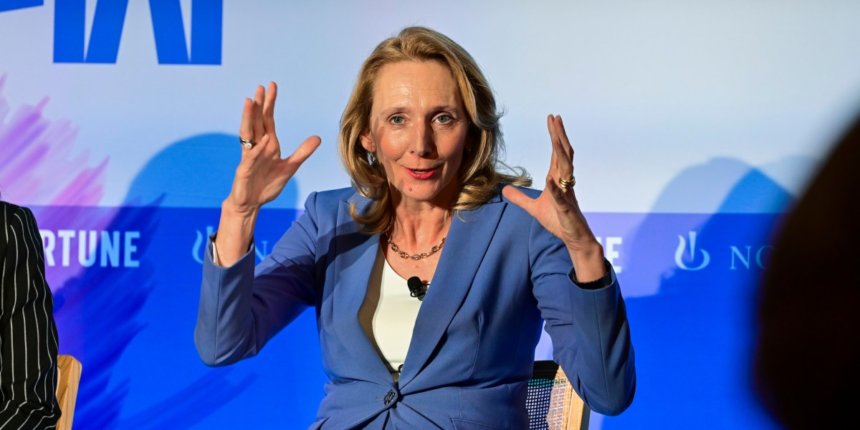“As they evolve, and some of the best agents or assistants that we’ve built actually do things themselves that comes with a whole bunch of governance things,” Faber said. “You have to keep in mind and make sure you really want that bot to take action. But if you don’t have an AI agent in every meeting, you’re missing out on some of the productivity.”
“That bot, in real time, has access to everything,” she continued.
Other panelists pointed out AI is only as good as the data it’s trained on.
“It’s most important to have the really good data,” she said. “Then you build the analytics on top.”
That can be challenging, though, for smaller companies with fewer resources who still use legacy tech platforms to gather data. But Massey said even these companies still have time to “catch up” considering AI is still in its nascent phase.
Still, the “vast majority” of executive teams feel as if they’re behind in AI adoption, Teneo’s Calise said.
“Everyone feels like they’re one step behind,” Calise said. “Everyone feels like they’re chasing their peers, because it is moving so fast.”
But Calise reminded the audience AI development and adoption is very much still in the first inning, to use a baseball analogy.
“We’re not just in the first inning,” she said. “We’re in, like the first at-bat, in the first inning.”









